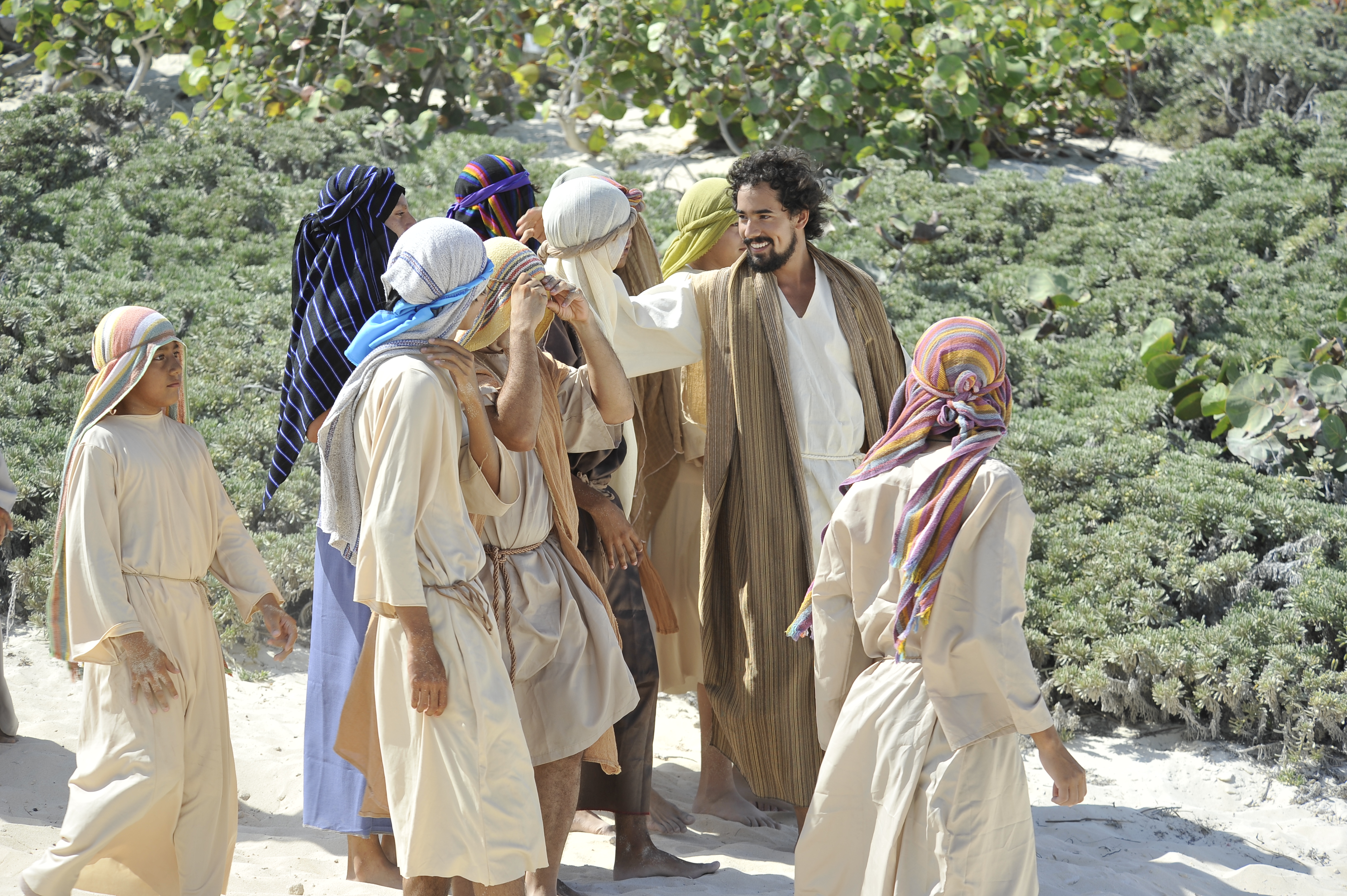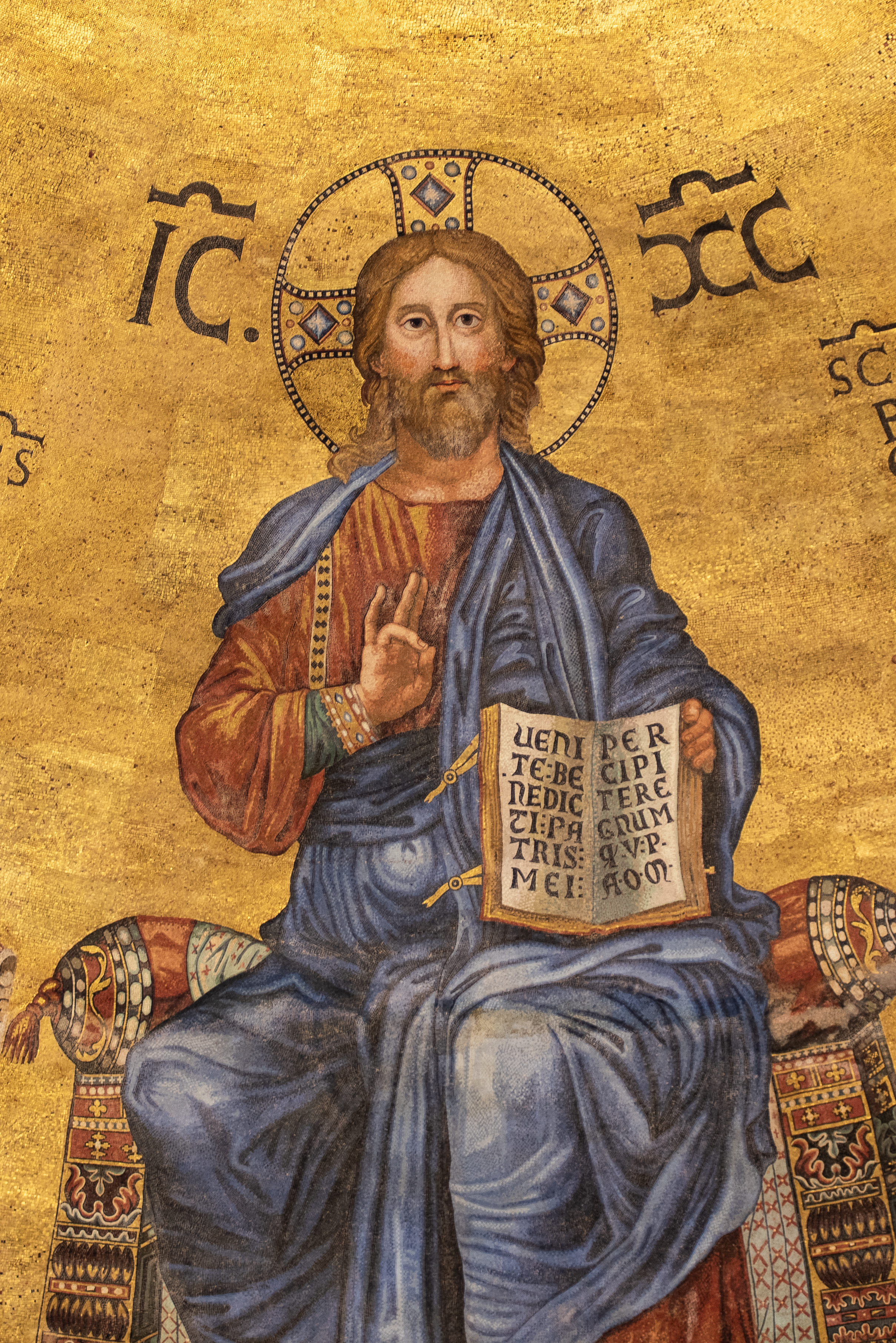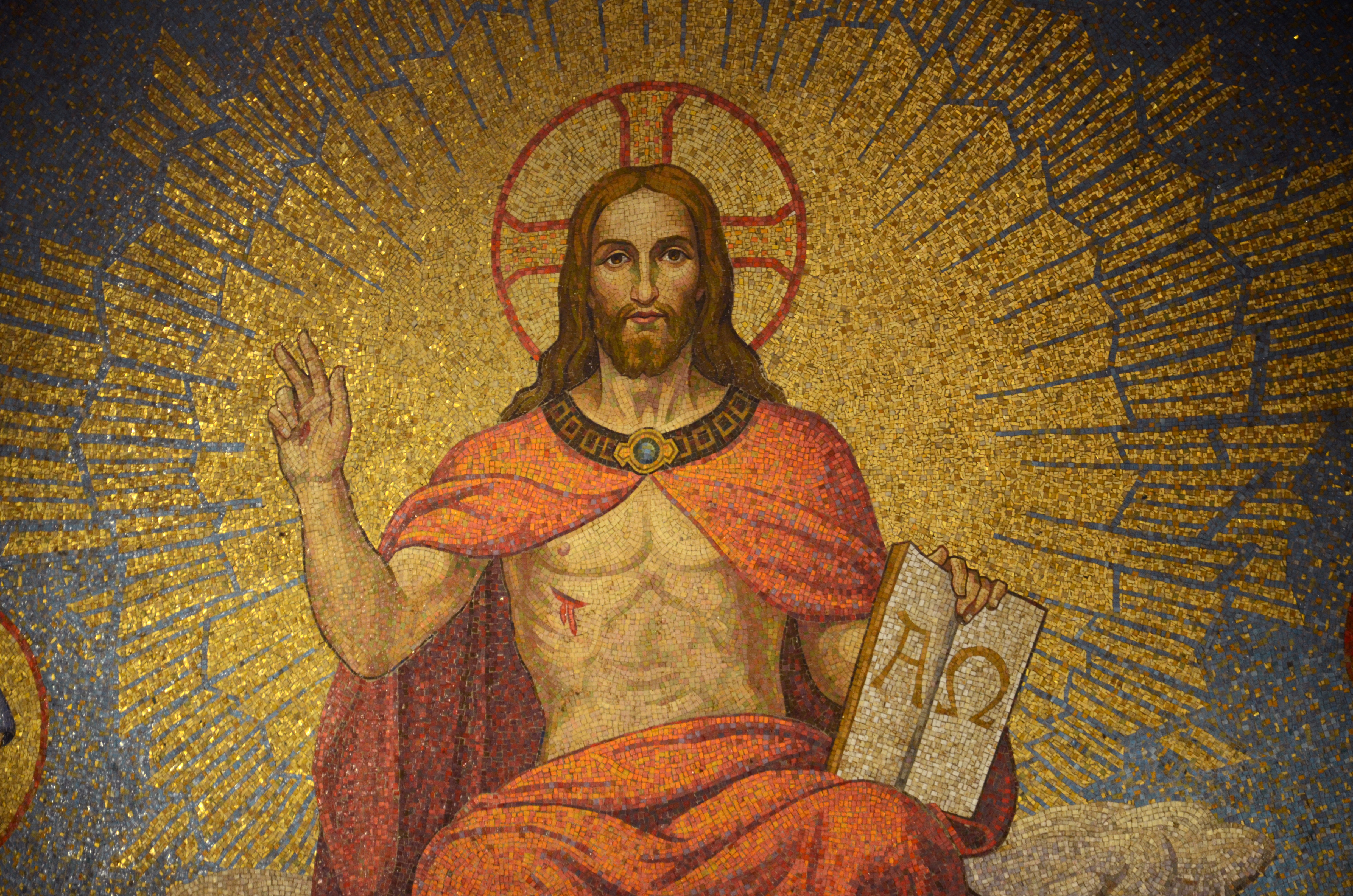*** This reflection was reposted from Diocesan Archives. ***
In today’s reading from the Gospel of Mark, crowds of people surrounded Christ and His disciples. They approached Christ because they heard that He had healed many. They, too, wanted to be healed.
Imagine living during the time of Christ, seeing Him in flesh and blood and hearing stories of the miracles He performed, knowing in your heart that He could heal you. Imagine being so convinced that you felt compelled to follow Him.
In a sense, the people in Christ’s time almost had it easy. They saw His miracles and heard His teachings; they could not deny that He was the Son of God.
It’s harder for us 2,000 years later. We don’t get that firsthand account. We don’t get to be eyewitnesses. We close our eyes and can only imagine what it must have been like. We rely on stories. We rely on faith.
Wouldn’t it be wonderful if, today, crowds of people still chased after Christ because they knew and understood who He really was? Some do. Yet many in our secular society scoff at those who believe. They tell us we’re “nuts” or “crazy.” They don’t understand. And they certainly don’t know Christ like we do. If they knew Him, they would run after Him as well.
But are we always like that crowd of people in Christ’s time? Do we so desperately seek Him that we run after Him no matter what? Or do we cautiously walk, unsure of what we have been taught, unsure of what we believe, and reticent to let the world know our beliefs?
Sometimes, when things get difficult, we may feel that Christ is not with us. But we must remain steadfast in the belief that He is always there. We must take steps to feel closer to Him. We pray unceasingly. We sit with Him in Adoration. We read His words.
Christ is our light and our hope. In this, we must have faith, a faith that impels us to run toward Him, even in dark times. We may not be able to tangibly see or touch Him, but we must believe that He will never leave us, for He loves us more than we can ever imagine.
So, the next time you feel like you are all alone, remember that Christ is our constant. He is the one thing we can always count on, no matter what. He is always waiting for us with outstretched arms.
He may not answer our prayers in the exact way that we want, and He may not take away our physical or mental ailments. But, if we ask, He will give the kind of healing that matters most, a spiritual healing. And that is why we are still here on earth.
En la lectura de hoy del Evangelio de Marcos, multitudes de personas rodearon a Cristo y a sus discípulos. Se acercaron a Cristo porque escucharon que había sanado a muchos. Ellos también querían ser sanados.
Imagínate vivir durante la época de Cristo, verlo en carne y hueso y escuchar historias de los milagros que realizó, sabiendo en tu corazón que podía sanarte. Imagínate estar tan convencido que te sentías obligado a seguirlo.
En cierto sentido, la gente de la época de Cristo casi lo tenía fácil. Vieron sus milagros y escucharon sus enseñanzas; no podían negar que era el Hijo de Dios.
Es más difícil para nosotros 2.000 años después. No conocemos ese relato de primera mano. No podemos ser testigos presenciales. Cerramos los ojos y sólo podemos imaginar cómo debió ser. Nos basamos en historias. Dependemos de la fe.
¿No sería maravilloso si, hoy en día, multitudes de personas todavía persiguieran a Cristo porque sabían y entendían quién era realmente? Algunos lo hacen. Sin embargo, muchos en nuestra sociedad secular se burlan de quienes creen. Nos dicen que estamos locos. No entienden. Y ciertamente no conocen a Cristo como nosotros. Si lo conocieran, también correrían tras Él.
Pero ¿somos siempre como esa multitud de personas en los tiempos de Cristo? ¿Lo buscamos tan desesperadamente que corremos tras Él sin importar nada más? ¿O caminamos con cautela, inseguros de lo que nos han enseñado, inseguros de lo que creemos y reticentes a dejar que el mundo conozca nuestras creencias?
A veces, cuando las cosas se ponen difíciles, podemos sentir que Cristo no está con nosotros. Pero debemos permanecer firmes en la creencia de que siempre está ahí. Debemos tomar medidas para sentirnos más cerca de Él. Oramos sin cesar. Nos sentamos con Él en la Adoración. Leemos sus palabras.
Cristo es nuestra luz y nuestra esperanza. En esto debemos tener fe, una fe que nos impulse a correr hacia Él, incluso en tiempos oscuros. Quizás no podamos verlo o tocarlo tangiblemente, pero debemos creer que Él nunca nos dejará, porque nos ama más de lo que jamás podamos imaginar.
Entonces, la próxima vez que te sientas solo, recuerda que Cristo es nuestra constante. Es lo único con lo que siempre podemos contar, pase lo que pase. Siempre nos está esperando con los brazos abiertos.
Es posible que no responda nuestras oraciones de la forma exacta que queremos y que no nos quite nuestras dolencias físicas o mentales. Pero, si se lo pedimos, Nos dará el tipo de curación que más importa: una curación espiritual. Y es por eso que todavía estamos aquí en la tierra.
 Susan Ciancio has a BA in psychology and a BA in sociology from the University of Notre Dame, with an MA in liberal studies from Indiana University. For the past 19 years, she has worked as a professional editor and writer, editing both fiction and nonfiction books, magazine articles, blogs, educational lessons, professional materials and website content. Thirteen of those years have been in the pro-life sector. Currently Susan freelances and writes weekly for HLI, edits for American Life League, and is the executive editor of Celebrate Life Magazine. She also serves as executive editor for the Culture of Life Studies Program—an educational nonprofit program for K-12 students. You can reach her at slochner0.wixsite.com/website.
Susan Ciancio has a BA in psychology and a BA in sociology from the University of Notre Dame, with an MA in liberal studies from Indiana University. For the past 19 years, she has worked as a professional editor and writer, editing both fiction and nonfiction books, magazine articles, blogs, educational lessons, professional materials and website content. Thirteen of those years have been in the pro-life sector. Currently Susan freelances and writes weekly for HLI, edits for American Life League, and is the executive editor of Celebrate Life Magazine. She also serves as executive editor for the Culture of Life Studies Program—an educational nonprofit program for K-12 students. You can reach her at slochner0.wixsite.com/website.
Feature Image Credit: Fernando Pérez Lara, cathopic.com/photo/9513-jesus-y-sus-discipulos


 A lover of Jesus Christ, a wife, and a mother of five, Christine is the author of Everyday Heroism: 28 Daily Reflections on the Little Way of Motherhood. She is a graduate of Franciscan University, an instructor for the Institute for Excellence in Writing, and an experienced catechist. Thrilled to have recently become grandparents, she and her husband currently live in Upstate, NY. Visit her author webpage at
A lover of Jesus Christ, a wife, and a mother of five, Christine is the author of Everyday Heroism: 28 Daily Reflections on the Little Way of Motherhood. She is a graduate of Franciscan University, an instructor for the Institute for Excellence in Writing, and an experienced catechist. Thrilled to have recently become grandparents, she and her husband currently live in Upstate, NY. Visit her author webpage at 
 Merridith Frediani loves words and is delighted by good sentences. She also loves Lake Michigan, dahlias, the first sip of hot coffee in the morning, millennials, and playing Sheepshead with her husband and three kids. She writes for Catholic Mom, Diocesan.com, and her local Catholic Herald. Her first book Draw Close to Jesus: A Woman’s Guide to Adoration is available at Our Sunday Visitor and Amazon. You can learn more at
Merridith Frediani loves words and is delighted by good sentences. She also loves Lake Michigan, dahlias, the first sip of hot coffee in the morning, millennials, and playing Sheepshead with her husband and three kids. She writes for Catholic Mom, Diocesan.com, and her local Catholic Herald. Her first book Draw Close to Jesus: A Woman’s Guide to Adoration is available at Our Sunday Visitor and Amazon. You can learn more at 
 Mike Karpus is a regular guy. He grew up in Michigan’s Upper Peninsula, graduated from Michigan State University and works as an editor. He is married to a Catholic school principal, raised two daughters who became Catholic school teachers at points in their careers, and now relishes his two grandchildren, including the older one who is fascinated with learning about his faith. He also has served on a Catholic school board, a pastoral council and a parish stewardship committee. He currently is a lector at Mass, a Knight of Columbus, Adult Faith Formation Committee member and a board member of the local Habitat for Humanity organization. But mostly he’s a regular guy.
Mike Karpus is a regular guy. He grew up in Michigan’s Upper Peninsula, graduated from Michigan State University and works as an editor. He is married to a Catholic school principal, raised two daughters who became Catholic school teachers at points in their careers, and now relishes his two grandchildren, including the older one who is fascinated with learning about his faith. He also has served on a Catholic school board, a pastoral council and a parish stewardship committee. He currently is a lector at Mass, a Knight of Columbus, Adult Faith Formation Committee member and a board member of the local Habitat for Humanity organization. But mostly he’s a regular guy.


 Kathryn Mulderink, MA, is married to Robert, Station Manager for Holy Family Radio. Together they have seven children (including Father Rob), and seven grandchildren. She is President of the local community of Secular Discalced Carmelites and has published five books and many articles. Over the last 30 years, she has worked as a teacher, headmistress, catechist, Pastoral Associate, and DRE, and as a writer and voice talent for Catholic Radio. Currently, she serves the Church by writing and speaking, and by collaborating with various parishes and to lead others to encounter Christ and engage their faith. Her website is
Kathryn Mulderink, MA, is married to Robert, Station Manager for Holy Family Radio. Together they have seven children (including Father Rob), and seven grandchildren. She is President of the local community of Secular Discalced Carmelites and has published five books and many articles. Over the last 30 years, she has worked as a teacher, headmistress, catechist, Pastoral Associate, and DRE, and as a writer and voice talent for Catholic Radio. Currently, she serves the Church by writing and speaking, and by collaborating with various parishes and to lead others to encounter Christ and engage their faith. Her website is 
 Dr. Alexis Dallara-Marsh is a board-certified neurologist who practices in Bergen County, NJ. She is a wife to her best friend, Akeem, and a mother of two little ones on Earth and two others in heaven above.
Dr. Alexis Dallara-Marsh is a board-certified neurologist who practices in Bergen County, NJ. She is a wife to her best friend, Akeem, and a mother of two little ones on Earth and two others in heaven above.
 Hailing from Nashville, Catherine is a graduate of Christendom College with a lifelong passion for words. Her love of writing and her Catholic Faith continue to shape her as a freelance editor, copywriter, and (aspiring) novelist, where she pursues her passions for the love and greater glory of God.
Hailing from Nashville, Catherine is a graduate of Christendom College with a lifelong passion for words. Her love of writing and her Catholic Faith continue to shape her as a freelance editor, copywriter, and (aspiring) novelist, where she pursues her passions for the love and greater glory of God.

 Kate Taliaferro is an Air Force wife and mother. She is blessed to be able to homeschool, bake bread and fold endless piles of laundry. When not planning a school day, writing a blog post or cooking pasta, Kate can be found curled up with a book or working with some kind of fiber craft. Kate blogs at
Kate Taliaferro is an Air Force wife and mother. She is blessed to be able to homeschool, bake bread and fold endless piles of laundry. When not planning a school day, writing a blog post or cooking pasta, Kate can be found curled up with a book or working with some kind of fiber craft. Kate blogs at 

 David Dashiell is a freelance author and editor in Nashville, Tennessee. He has a master’s degree in theology from Franciscan University, and is the editor of the anthology
David Dashiell is a freelance author and editor in Nashville, Tennessee. He has a master’s degree in theology from Franciscan University, and is the editor of the anthology